Search Images
Browse Content (p. 392)
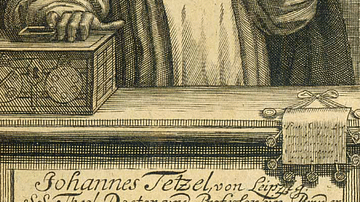
Image
Johann Tetzel
An early 18th-century print showing Johann Tetzel (l.c. 1465-1519), a Dominican Friar who became famous as one of the most effective indulgence salesmen in the Catholic church.
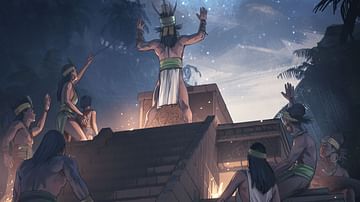
Image
Olmec Ceremony
Artist's impression of an Olmec religious ceremony atop a temple pyramid. Created by Amplitude Studios for the video game Humankind.
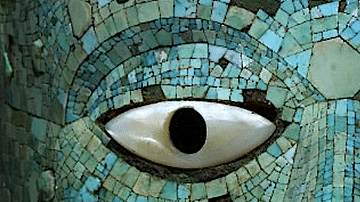
Image
Mask of Xiuhtecuhtli (Detail)
A detail of a turquoise mosaic mask representing Xiuhtecuhtli, the Aztec god of fire, 1400-1521 CE. The mask is of cedar wood with mother-of-pearl eyes, conch shell teeth and once with gold leaf on the eyelids. (The British Museum, London).
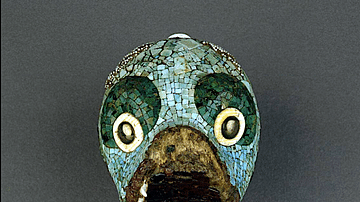
Image
Aztec Turquoise Pendant
An Aztec pendant representing an animal head and covered in turquoise mosaic and with eyes rendered in shell and pyrite. 1400-1521, Mexico. Height 10 cm. (British Museum, London)
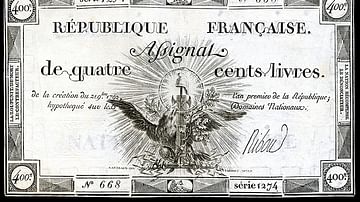
Image
Assignat, 1792
An example of the assignat banknote for 400 livres, issued in 1792 during the French Revolution. From the National Numismatic Collection at the Smithsonian Institution. Image by Godot13.
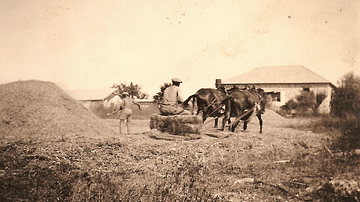
Image
Using Horses for Threshing Grain
A c. 1930 photograph showing the use of horses to thresh grain across a threshing floor.
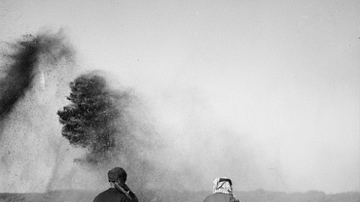
Image
Winnowing
A c. 1900 photograph showing Lebanese agriculturalists engaged in the ancient process of winnowing grain. (Matson Collection, Library of Congress)
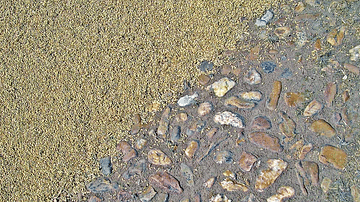
Image
Flat Threshing Floor
A traditional flat threshing floor.
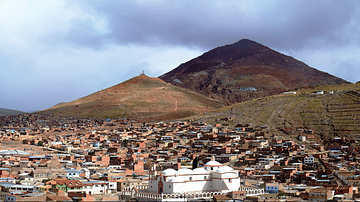
Image
Potosí, Bolivia
A panoramic view of Potosí, Bolivia, location of the richest silver mine in the Spanish empire during the 16th-18th centuries.

Image
Bantu Farmers
This artist's illustration shows Bantu farmers using slash-and-burn agriculture to clear arable land. Created by Amplitude Studios for the video game Humankind.